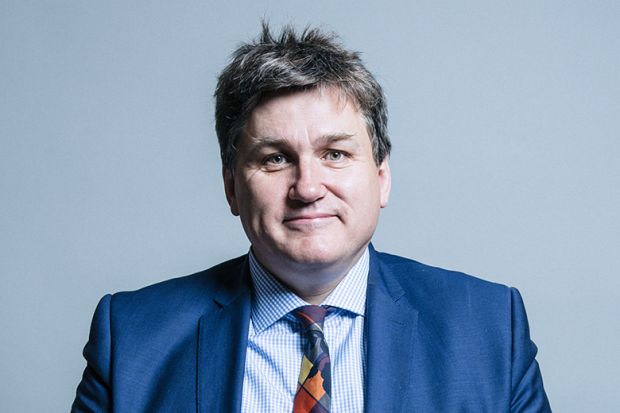Kit Malthouse has been appointed education secretary and Jacob Rees-Mogg has become business secretary in UK prime minister Liz Truss’ first Cabinet.
Mr Malthouse, formerly the Chancellor of the Duchy of Lancaster and before that a policing minister, is the fifth minister to head the Department for Education in the space of a year. He succeeds James Cleverly, now the foreign secretary, who was the third education secretary in three days when he took office during the collapse of Boris Johnson’s premiership two months ago. Former higher education minister Michelle Donelan held the post for less than 36 hours, succeeding Nadhim Zahawi, who had replaced Gavin Williamson in September 2021.
North West Hampshire MP Mr Malthouse, who was formerly an accountant and then deputy mayor of London under Mr Johnson, studied politics and economics at Newcastle University.
He may be seen as compromise candidate by the English university sector compared with Ms Donelan, who had been tipped to make a comeback at the DfE but was instead named culture secretary. Vice-chancellors accused her of using “press pressure” and the “creation of division” for political gain during her time as higher education minister after she called on universities to consider pulling out of voluntary diversity schemes.
Mr Malthouse may also be more palatable than Kemi Badenoch, who was hotly tipped for the education brief after positioning herself in her own leadership campaign as the “anti-woke” candidate and who had claimed that “some universities spend more time indoctrinating social attitudes instead of teaching lifelong skills or how to solve problems”.
More eyebrows will probably be raised by the appointment of Mr Rees-Mogg, with the handing of responsibility for energy policy – as well as science – to someone who has questioned the scientific consensus on climate change likely to prove controversial.
The Guardian reported that Mr Rees-Mogg would take on direct responsibility for energy policy after Ms Truss struggled to find a junior minister to take on the post under him. It reported that former universities minister Chris Skidmore had been offered the role of energy minister but declined it because he would not be able to attend Cabinet.
Mr Rees-Mogg has claimed that “climate alarmism” should be blamed for high energy prices and that it was unrealistic for scientists to assert that they could model global warming accurately when meteorologists struggled to correctly predict the weather.
The Trinity College, Oxford graduate has also raised concerns about freedom of speech on campus, having been involved in a scuffle with protesters at an event at the University of the West of England in 2018.
Lower-ranking ministerial appointments, including the higher education and science posts, were expected to be announced later in the week.
The new appointees will find pressing issues for the higher education sector in their in-tray, but their room for manoeuvre may be limited by the government’s likely focus on the cost-of-living crisis and opportunities for investment may be constrained by Ms Truss’ desire to create a low-tax economy.
Ms Truss will quickly face calls to tackle the ongoing deadlock over the UK’s association to the Horizon Europe research funding programme, while vice-chancellors have pushed for the government to reconsider the “deep freeze” of university tuition fees, arguing that the soaring rate of inflation has devalued fees – which have risen just once in the past decade – even further.
Meanwhile, it was thought that the government had been ready to respond to consultations on its plans to introduce student number controls and a minimum entry requirement just before the leadership crisis occurred, but the plans, which the Johnson government had already pledged to implement via a bill, had to be paused. Further significant delays could potentially put in doubt the introduction of student number controls for 2024-25.
Despite pitching herself as an “education prime minister” during the course of the campaign, Ms Truss has had little to say about universities and research.
Her major policy intervention in this area concerned admissions to the universities of Oxford and Cambridge, as she pledged to guarantee an interview with the elite institutions for anyone who achieved three A* grades in their A levels, a move that would have required a switch to post-qualification admissions and, potentially, January start dates for undergraduate courses.
Speaking to Times Higher Education previously, Steve West, president of Universities UK and the UWE vice-chancellor, said he wanted the new prime minister to provide “stability and focused engagement” as well as “long-term sustainable funding that delivers high-quality skills, education and research that supports growth in our economy”.




